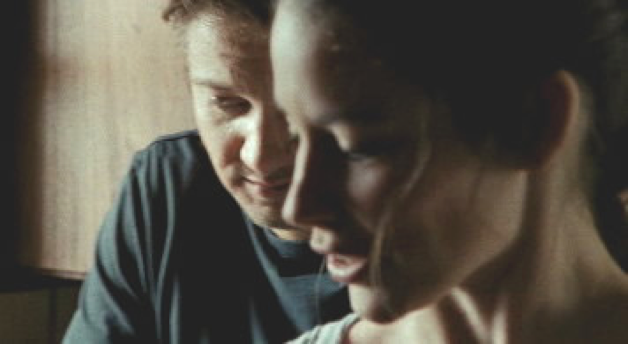"A Different Kind of War Film: The Ethos of the Individual Soldier in The Hurt Locker"
|
Mikal LambdinMikal has a BA in English with a concentration in Writing and Rhetoric from George Mason University. She most recently worked as an Undergraduate Research Assistant for Writing Across the Curriculum, where she wrote research-driven blog posts about composition from a student perspective. She enjoys pushing the envelope when writing by creating her own rhetorical frames and finding connections between dissimilar topics like children’s literature and politics. Mikal lives in Arlington, Virginia, with her doctor-to-be husband and hyperactive cat. Contents"I Don't Know": Leaving Things Out "I Don't Know": Leaving Things Out Cont. "I Wanna Die Comfortable": War is a Game "I Wanna Die Comfortable": War is a Game Cont. "With Me I Think It's One": Man Over Machine |
"I Wanna Die Comfortable": War is a Game, Cont.James’s addiction and detachment are examined from a different angle toward the end of the film, after he has returned home to his family. In the following scene, he briefly converses with his wife while cooking dinner, this time demonstrating a detachment from civilian life: JAMES. Some guy drove his truck to the middle of an Iraqi market, starts passing out free candies. All the kids come running up, the families and stuff. He detonates. They’re saying 59 are dead. You know they need more bomb techs. As James begins the story, it sounds harmless. He highlights the candy and the children, smiling as he describes their eagerness. When he reveals the tragic conclusion, his tone changes ever so slightly, becoming stiff and remote. In the long pause that follows, the audience is allowed to wonder as to the purpose of this heartbreaking story.  Does James truly enjoy reminiscing on these horrific memories while his wife chops carrots in the kitchen? The pained look on his face as he gazes out the window quickly negates this explanation, while his next line is illuminating: “You know they need more bomb techs.” After surviving a life-threatening rotation to return to his family, all he can think about is going back. While James’s detachment from death and the risk of the battlefield has been established, this scene reveals that he is just as detached from the opposite – safety and normality as a husband and father. He simply does not know how to cope with normal life, to the point where the peril of war is a welcome respite. What initially sounds like a simple story turns into a well-played scheme to justify his decision to re-enter combat: the innocent civilians need him. The 59 dead children need him. James ironically uses the value of family to validate the desire to escape his own. He defends his case for the sake of the children, as he seeks to leave his own child behind.  Yet, his active manipulation in part reveals something that is absent from the scene where he expresses the desire to die comfortable. While arguably just as detached, here James expresses an awareness of his detachment. His wish to continue as a bomb tech may be superficially honorable, but the detachment that fuels it is not, and James justifies this wish knowing that it needs justifying. His actions reinforce this knowledge, and even suggest shame. After finishing his story, James falls silent, and like so many other instances of silence in the film, his is full of meaning. He gazes quietly out the window, his eyebrows ever so slightly furrowed. Although faint, there is no mistaking the resignation and guilt on his face as he turns to stare at the ground and reveals his intent, his voice no more than a whisper. This scene is very different from the one where James brazenly throws caution and his bomb suit to the wind and faces death without blinking an eye. Yet, like the other, it emphasizes his detachment from the world around him, thus strengthening his ethos as an addict of war. |